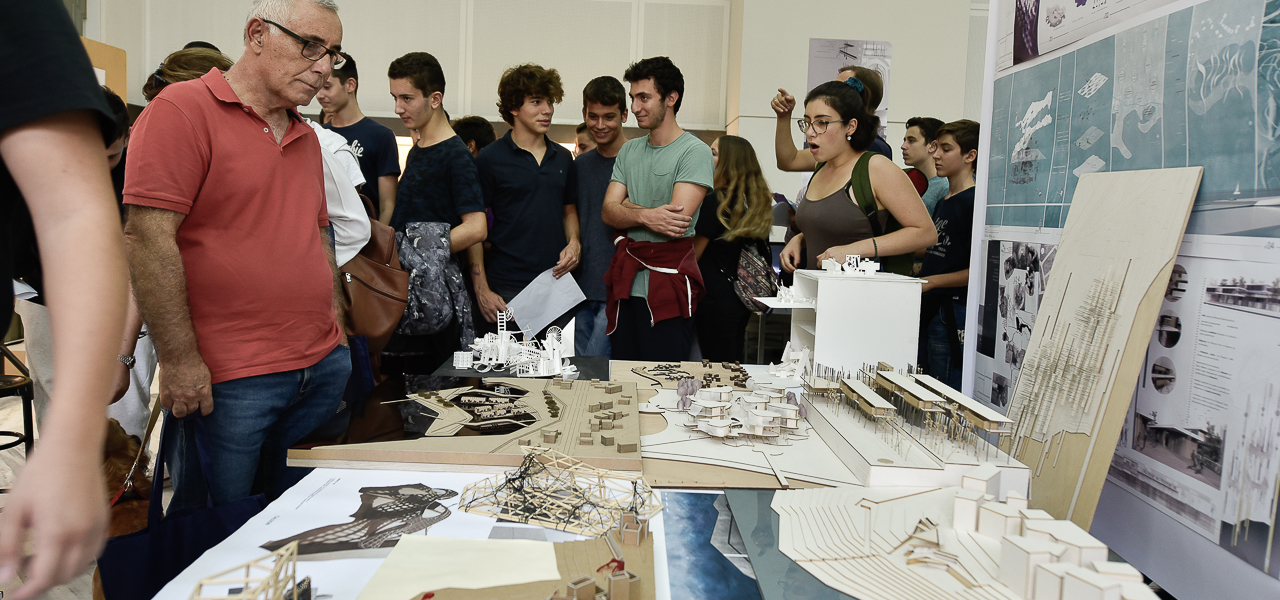You can view the lessons' web pages of the old Curriculum Structure here
The Graduate studies at the NTUA School of Architecture last five academic years and equal to a Master degree (MA). The main aim of our Curriculum is an education that will mold professionals who will possess structured views on architecture, will understand in-depth the social realities they will be facing when in practice, will have attained the necessary technical knowledge and building expertise and will have sharpened their senses and spirit so as to be able to meet in a complete manner the developing architectural ideas.
The programme includes five basic thematic areas of courses, according to their syllabus: Design - Theory, History-theory, General Education, Visual Expression and Representation, Urban and Regional Planning and Architectural Technology.
The aptitude for designing through all scales, from building and city to object, is cultivated together with the realization of the principles of sustainability in architecture and the necessity for a respectful and mindful environmental and landscape design –both natural and manmade- to facilitate human needs.
Building knowledge in history and theory and familiarizing with the fine arts aim at enriching the aesthetics of construction and fine tune an artistic sense; furthermore, a well composed scientific and creative personality is sought for our architects, supported by a continuous training in building technology and its developments. The study programme is designed for accomplished scientists who have the capacity of interdisciplinary work and are fully aware of their responsibility towards society for the creation of a high quality human environment which meets aesthetic, functional, cultural, technological and ecological requirements.
Our educational programmes are supported and enhanced by research activity conducted primarily on our campus, as part of our laboratories and design studios. Experimental concepts developed in the academic process, are tested through applied research, linking the learning process to existing social needs and production demands.
Nowadays, the speedy development of ideas and techniques, as well as the rapidly evolving social networks, continuously alter the way we administer the issues of built space and necessitate changes in the ways we manage the natural environment. We, at the NTUA School of Architecture faculty, are confident that the education it offers is always of the highest standard while, at the same time, is open to the challenges of our times.
The curriculum of the NTUA School of Architecture is based on the general requirements of higher education scientific faculties and, at the same time, draws from the particular social needs as well as the demands of architectural production as they evolve both in the immediate milieu of professional architects in Greece and abroad, under the influence of political, social, financial and cultural transformations. As the NTUA School of Architecture is a state-run academic institution, offering tuition free education to its students, it is unavoidable that the structuring of its programme is directly connected and affected by emerging social demands and the institutional framework of Greek public education.
The public character of our School leads to the principle of keeping the breadth and diversity of its study programme, in terms of its structure, its academic staff and its students. In other words, our School addresses a great number of students from every walk of life and trains them, so that they become capable of offering their services to specific demands of society but also the market at large. It aims at the molding of architects intended to tackle the broader field of issues which should preoccupy the state and which answer the needs of the wider possible section of the country's population.

